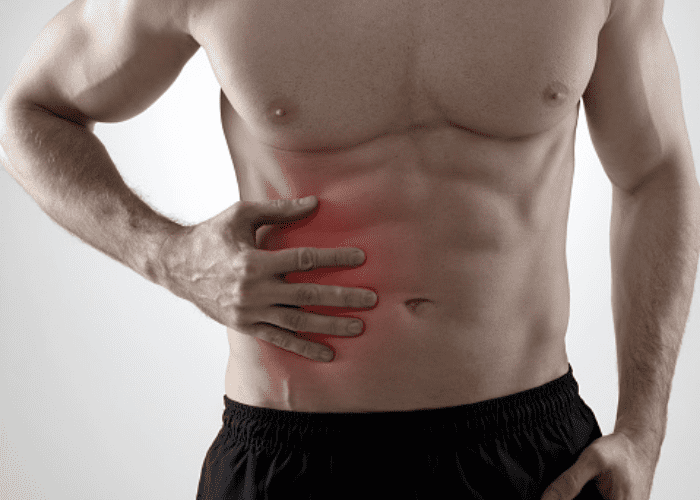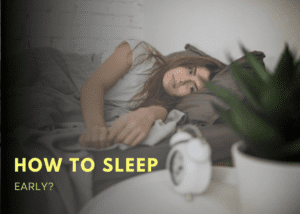Whether you’re working out too immensely or have just recovered from bronchitis and severe coughing, it’s common to experience rib muscle pain, which may also affect breathing. But if there are other complications and it feels excruciating, then it could be an intercostal muscle strain.
How to sleep with intercostal muscle strain? This simple guide will provide you with enough information to understand this injury, including some wellness tips.
Intercostal Muscle Strain Causes

An intercostal muscle strain occurs when the intercostal muscles between the ribs are stretched, pulled, or partially torn. One of the most natural causes of this injury is doing repetitive movements at extreme pressure. Below are other reasons of intercostal muscle strain that you need to be aware of:
- Chest injuries due to hard-hit and fall.
- Extreme twisting of the upper body.
- Extreme twisting of the upper body.
- Coughing.
- Contact sports that have an impact blow.
- Overhead reaching such as painting the ceiling.
- Prolonged stretching.
Breathing usually is painful when you have intercostal muscle pain, but there is a possibility that you also have pneumonia. It’s essential to consult your doctor to know what’s causing your painful breathing. You will need to undergo X-rays and other tests to see if there are blood clots and other complications in your lungs.
Intercostal Muscle Strain Exercises to Avoid
It’s essential to keep your muscles strong to prevent intercostal muscle strain from coming back. However, there are some strenuous exercises that you need to avoid if you’re trying to heal from this severe injury. For instance, lifting weights and twisting exercises should be avoided in the meantime.
Moreover, you need to avoid playing contact sports such as baseball, tennis, golf, and rowing. You should not perform any stretching exercises without expert supervision from your physical therapist or doctor. In case you feel more pain or worse symptoms, immediately stop doing exercises.
Intercostal Muscle Strain Treatment
For mild intercostal muscle strain, home treatment is the best way to recover from the injury. Besides, there’s no better place to relax while nursing a strained muscle than your home. Here are some options you can choose from when doing a home treatment for intercostal muscle strain:
- Use a cold pack on the afflicted area then apply heat therapy. Some of the most common heat therapies you can use include adhesive heat wrap, heating pad, or warm bath. You can easily order heating pads and cold packs online if you can't go out.
- Limit your physical activities within the recovery period to help your muscles quickly heal.
- Reduce pain and swelling with pain medications recommended by your doctor. Over-the-counter painkillers are available such as ibuprofen and acetaminophen.
- For painful breathing, hold your pillow against your injured intercostal muscle. However, splinting is only a temporary remedy at home. More often than not, difficulty breathing warrants immediate medical attention.
If you consult your doctor, you may get the following recommendations as to additional options for intercostal muscle strain home remedy:
- If the treatments mentioned earlier, don’t work for you, you can inject corticosteroids and lidocaine to reduce swelling and pain.
- Undergo physical therapy to recover your muscles from injury.
- Use muscle relaxants to soothe spasms and muscle pain.
Your doctor could provide you with an appropriate treatment plan that will work for your condition.
How Long Does It Take for Intercostal Muscle to Heal
For mild intercostal muscle strain, it can heal in just a matter of days. Moderate strain can take up to 7 weeks to heal completely. However, severe intercostal muscle strain with torn muscles may need more time to heal. Generally, most strains can improve in just 6 weeks, depending on the treatment and recovery capacity.
Here’s how you determine the severity of your muscle strain:
- Grade 1 is a mild strain that involves 5% of damaged muscle fibers. It only affects a minimal portion of your body and takes up to 3 weeks to recover.
- Grade 2 involves a broader range of damaged muscle fibers. However, the muscles are not severely damaged, so you won’t completely lose the sense of motion. The average healing time may take up to 3 months.
- Grade 3 is the complete damage of your muscle fibers. The best way to recover from this injury is to undergo surgery.
You can prevent muscle strains after recovery through warm-ups and stretching exercises before performing any straining activities.
Is Massage Good for Intercostal Muscle Strain
Massage works well for intercostal muscle strains by relaxing tight muscles that cause painful breathing and loss of motion. If you don’t have a therapist, you can self-massage at home. Use your fingers or thumb to massage the strain. Some techniques you can use include pressure-motion, precise massage stroke, or the ischemic compression technique.
How Do You Relax Your Intercostal Muscles
Press your finger or thumb into the strained muscle between the ribs. Check the area for any sensitive points, start from the breastbone to the rib lines then back to the rib cage side. Massage the vulnerable points gently several times by moving your thumb around the spot. Avoid sliding over your skin when moving it over the muscles.
Can A Chiropractor Help with Intercostal Muscle Strain
A chiropractor can treat mild intercostal muscle strain within 4 to 6 weeks. On the other hand, proper chiropractic can also be applied to severe strains, but they will take more time to recover fully. Getting back on your feet can be faster when you work with a professional chiropractor or massage practitioner.
Your chiropractor or therapist will help you determine the ideal sleep positions to avoid triggering your sensitive points. Below are some positions you can consider when sleeping with intercostal muscle strain:
- Maintain your strain in a neutral position.
- Elevate your injury.
- Avoid putting pressure on the injured part while sleeping.
- Stretch out your muscles to keep it flexible.
It’s crucial to determine the best treatment to reduce the inflammation with an inflamed nerve on your rib cage. Whether you’re new to this injury or suffering and recovering a few times already, talk to your doctor to reduce the symptoms and manage future complications.
What causes intercostal muscle strain?

This condition appears to be age-related, and those who lead sedentary lifestyles are more likely to suffer from it. You may need to deal with this problem if you are in your 60s and don’t exercise much. Massaging the chest provides relief for many people with this condition.
If you have a fall or a car accident where you have experienced pressure from a seat belt across your rib cage, this could be sufficient to stretch the ribs and cause intercostal chest strain.
If you are younger, you are not off the hook. If you play sports with a physical contact element, such as football or hockey, you can also experience intercostal muscle strain.
Jolts to the rib cage, either physically or in the form of sudden torsion/ twisting, can be enough for you to experience intercostal muscle strain.
What does an intercostal strain feel like?
It varies from severe to mild. If you have had an injury to your chest and have intercostal muscle strain, you may experience sharp pain every time you try to twist.
The pain is not limited to twisting. You will feel a sharp pain when you stretch your chest muscles, breathe in and out, cough, and, god forbid, sneeze.
The area between your ribs where you have the strain will be sore to touch.
How should I sleep with intercostal muscle strain?
If possible, on your back. The best way to sleep for pain relief from an intercostal muscle strain is on your back with your back flat on the bed.
However, sleeping on your back for prolonged periods is uncomfortable for most of you, so you need to take some extra steps to alleviate the discomfort.
Raise your knees, pointing at the ceiling, and insert a pillow or two under your knees. This will stop the feeling of pulling on your lower back.
If you need to change position to get comfortable, try not to twist your torso, this will cause pain and inflammation.
Try to move your body in one motion, lying down, sitting, or otherwise, to stop the pain. When you sleep on your side, you may need to sit on the side of the bed and reposition yourself.
Sleep in the fetal position with a pillow between your legs for the most relief.
Can you sleep sitting up with intercostal muscle strain?
Yes, you may find the most relief sleeping in this position. To sleep in an upright position, you have two options, 1. Sleep in a recliner. 2. raise the mattress by placing pillows underneath it.
If you do not have a recliner, you will find your sleep more restful if you raise the mattress rather than sleeping on less uniform pillows, and may make you twist.
Why do pulled muscles hurt more at night?
Your biomechanical system adjusts for sleep. AS your body starts to relax and wind down for sleep, there are some significant changes in hormone levels, Such as reduced cortisol levels, which has an anti-inflammatory effect. Hence pain increases with inflammation.
Do muscles heal when you sleep?
Yes. Sleep is one of the essential factors when recovering from any injury.
When you reach the deeper stages of sleep, the blood flow to the damaged or strained muscle will increase. Increased blood flow brings the nutrients and oxygen to the muscles required for the muscle to repair.
Without adequate sleep, it takes longer for muscles to regenerate new cells, which prolongs the recovery period.
Do naps help muscle recovery?
Yes, it can help. Napping is fine and does have benefits, but there is a word of caution. If napping affects how you sleep through the night, don’t do it.
The best way to heal is to sleep through the night uninterrupted. Plus, napping can make you feel groggy and irritable.
If you feel like taking a nap, by all means, do it if it’s not late in the day, like early evening.
At what stage of sleep does healing occur?
N3 is a stage of sleep where dreams do not occur, and eye movement is minimal. N3 sleep lasts for up to 90 minutes through the night, with shorter episodes recurring after the main event.
The bad news is that N3 sleep lessens as you age, with older people not receiving any N3 sleep whatsoever, which is bad news for healing strained muscles.
Can you take medication for pain relief with intercostal muscle strain?
Yes, medication is an important way of getting pain relief from intercostal muscle strain, and you should take a painkiller before sleeping.
Depending on the severity of pain, your doctor may give you stronger pain killers that are permitted to be sold over the counter.
However, you can take over-the-counter pain medications. Paracetamol or Ibuprofen works well if you are not allergic to these drugs.
Ibuprofen does have anti-inflammatory properties and may work best for you.
What is the fastest way to heal intercostal muscle strain?
Take medication and rest. There are other ways to help intercostal muscle strain heal, such as:
- Use ice pack, you can apply ice packs wrapped in material to avoid skin burning for 20 minutes every hour if needed, but some hot packs best follow it to reduce inflammation.
- Massaging the area gently has proven benefits.
- Complete rest from all physical activities will be required.
- If breathing is painful, you can hold a pillow against the injured area for support. You can tape the area loosely so you can breathe.
Best way to sleep with pulled chest muscle
If you have a pulled chest muscle, it’s important to take steps to reduce pain and inflammation and promote healing. Here are a few tips for sleeping with a pulled chest muscle:
- Sleep in an upright position: Sleeping in an upright position with a few pillows propped behind your back can help to reduce the strain on your chest muscle. This can also prevent you from rolling onto your chest while sleeping, which can further aggravate the injury.
- Use a firm mattress: A firm mattress can help to provide support for your back and keep your spine in proper alignment while you sleep.
- Try a chest brace: A chest brace can help to immobilize the muscle and limit its movement, which can reduce pain and inflammation.
- Avoid certain positions: It’s important to avoid any positions that put a lot of stress on the chest muscle, such as sleeping on your stomach or on your side with your arm under your head.
- Use ice or heat therapy: Applying ice or heat to the affected area can help to reduce pain and inflammation. Ice therapy is best in the first few days to reduce inflammation and after that heat therapy to soothe the muscle.
- Exercises and Stretching: After consulting with your doctor you can start doing some light stretching and exercises to improve the flexibility and strength of the affected muscle.
It is important to consult with your doctor or a physical therapist for personalized advice, particularly if your pulled chest muscle was caused by an accident or injury, and make sure you are healing properly and following the correct protocol.





